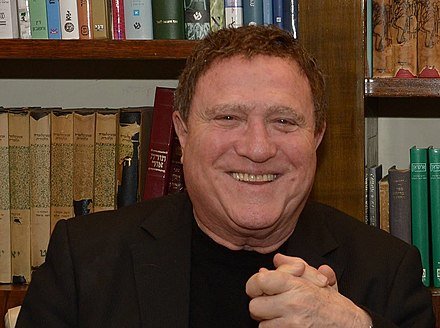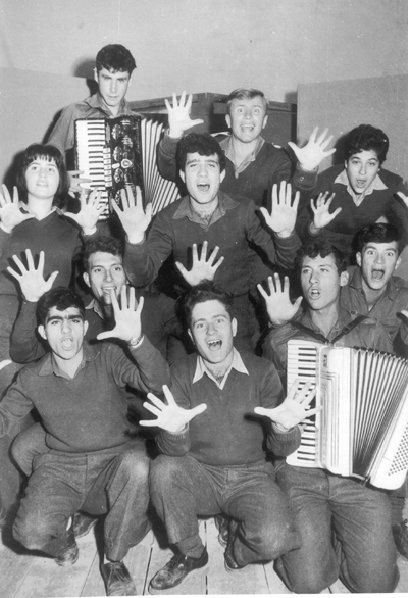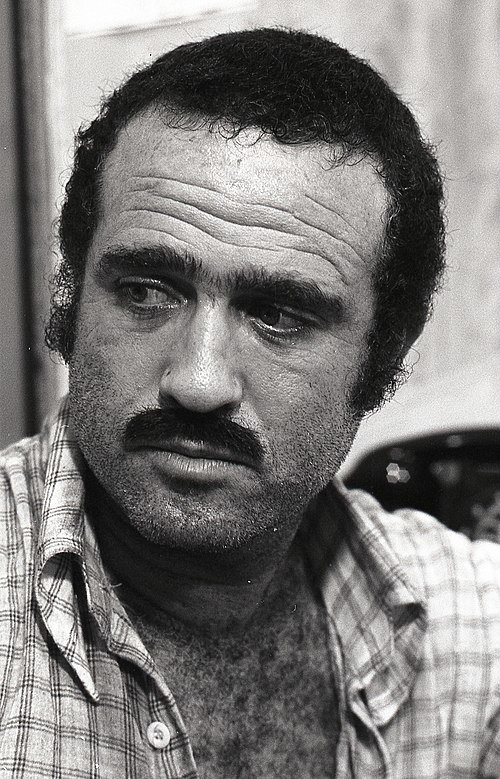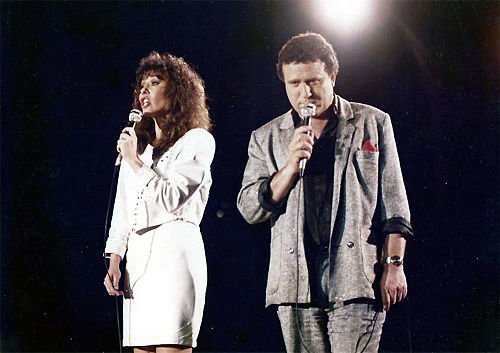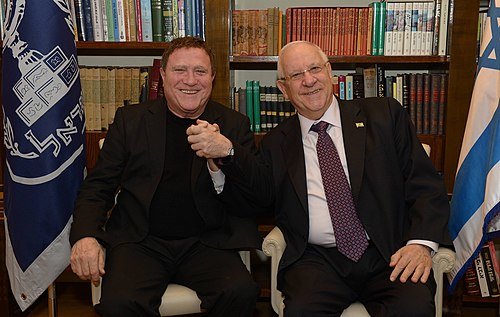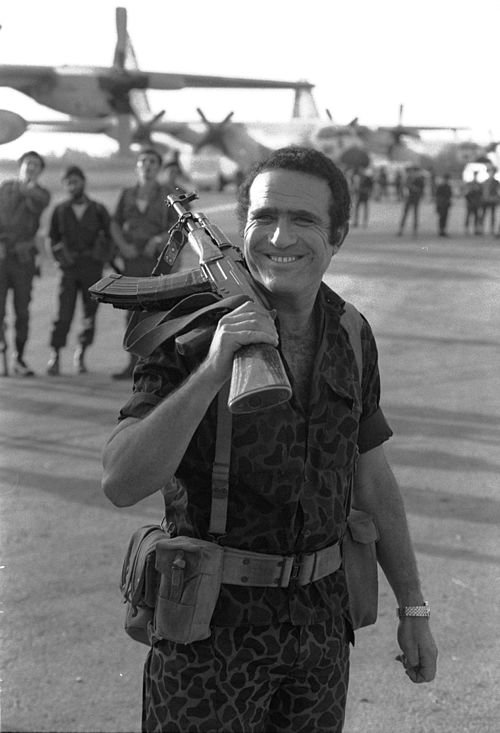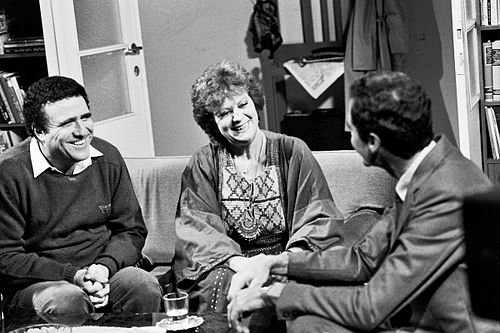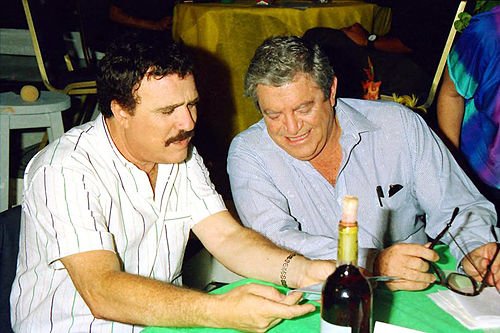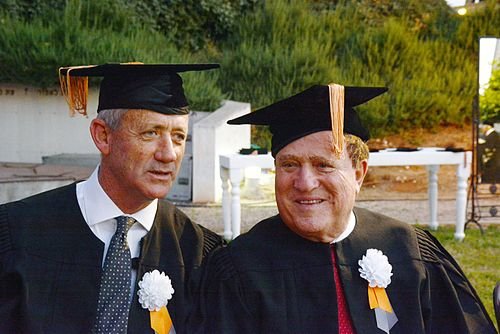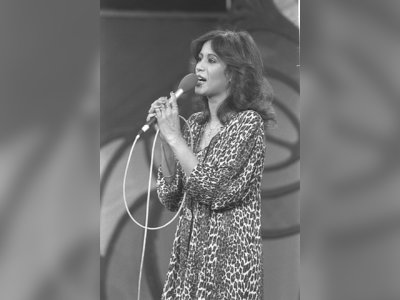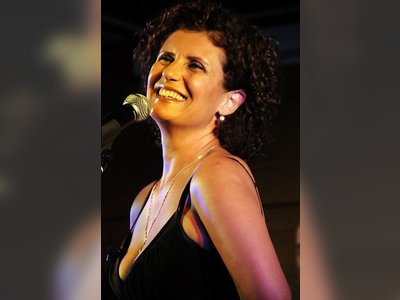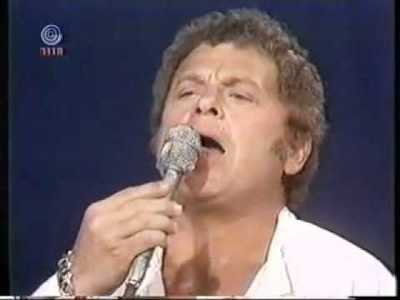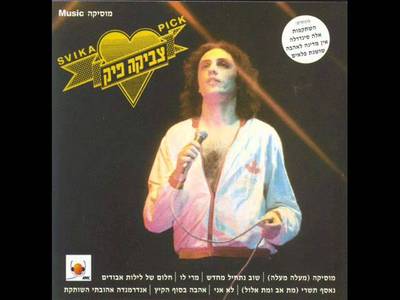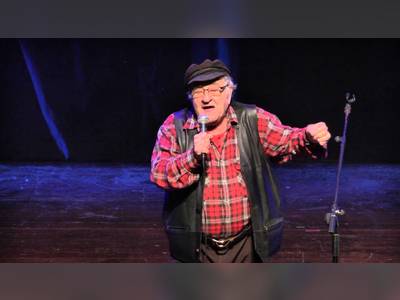Yoram Gaon: A Journey through the Life of an Israeli Entertainment Icon
Yoram Gaon, born on December 28, 1939 (16th of Tevet, 5700), is a multi-talented Israeli artist known for his contributions as a singer, television presenter, radio host, comedian, and actor in the realms of cinema, television, and theater. In 2004, he was honored with the Israel Prize for his significant contributions to Hebrew song.
Biography
Gaon was born in the picturesque surroundings of Mount Scopus and was raised in the Beit Hakerem neighborhood of Jerusalem. During his childhood, he attended the "Beit Hakerem" public school and later the Beit Hakerem High School, also known as "Lev Ha-Da'at High School."
He was the son of Sarah and Moshe David Gaon, a poet and journalist who wrote in Ladino. Yoram had three siblings: Yigal Gaon (1926–2019), Kalila Gaon (1925–2010), and Beni Gaon (1935–2008). His father, a descendant of Spanish exiles, was born in Bosnia in 1889 and came to Israel, where he became a Hebrew teacher.
After some time, he was sent to teach Hebrew in the Jewish community in Izmir, Turkey, where he met Sarah, Yoram's mother. Shortly thereafter, both of them immigrated to Israel and started a family.
Yoram Gaon completed his military service in the Nahal Band, where he joined in 1957 as an actor. Alongside his service, he sang with his bandmates, including Tuvia Paz and Aliza Rosen.
Gaon initially wasn't recognized primarily as a singer until, during the recording of the song "Ruch Stav," Uri Zohar, the band's leader, recommended that he sing the two lines originally designated for him.
In 1959, Gaon participated in the program "Bederech Klal" directed by Naomi Polani, where his singing talent was acknowledged. His first movie, "HaTikun HaKatan" (The Small Correction), was released in 1959 and featured members of the Nahal Band.
After his discharge from the army, Gaon was approached by fellow members of the Nahal Band, who asked Naomi Polani to continue working with him. This led to the creation of the "HaTarnegolim" (The Roosters) band, where Gaon began singing, even though he wasn't initially considered a dominant vocalist.
During that period, several rising stars emerged, including Shaike Levi and Israel Poliakov, who would later become part of "The White Night's Harvest" group. Some of the notable songs that Gaon sang during the early days of "HaTarnegolim" included "Zemer Ahava LeYam" and "Erev BaMascha."
Concurrently, Gaon began acting in the Cameri Theater and also performed in the show "Shoresh Kol Ra," at the Hamam Club, where he sang "Shir HaNashim" (The Women's Song). Later on, he formed "Shaloshayit Geshar HaYarkon" together with his friend from the Nahal Band, Arik Einstein, and Beni Amdurski.
Many of the group's songs became major hits in Israeli music, including "Laila BeChof Akhziv," "Saranda Lach," "Otach," and "Eize Yom Yafe" (What a Beautiful Day). The trio recorded the album "First Love" together. Gaon went solo about a year after the group's formation to focus on his solo career.
In 1965, Gaon released his debut solo album, "Kol HaIr Meraklet Aleinu" (The Whole City Is Gossiping About Us). The album consisted entirely of songs written by Yossi Gamzu, including the hit "Eifo Hen HaBachurot" (Where Are the Girls), which was based on a folk tune.
Three songs from the album, "Lail Aviv" (Spring Night), "Amru Li" (They Told Me), and "Ulai Tafsiki Kvar" (Maybe You'll Stop Already), were composed by Yaakov Hollander.
The album also featured Gaon's Hebrew version of The Beatles' song "I Want to Hold Your Hand," titled "Ze Nadbek" (It's Sticking). A year later, Gaon released a mini-album titled "Katz Echad Shel Koach" (One Summer of Strength), which included four songs written by Gamzu and composed by Sasha Argov.
In 1966, Gaon traveled to the United States to study acting. He returned to Israel after being approached by Yoel Silberg, who was set to direct the musical "Kazablan" and remembered the talented singer.
The musical, written by Yigal Mossinson and set against the backdrop of the "Big Construction" in Jaffa, was produced in 1966 and became a tremendous success, catapulting Gaon into the ranks of Israel's leading singers. Two songs from the musical, "Kol HaKavod" (All the Respect) and "Yesh Makom" (There's a Place), are still closely associated with Gaon to this day.
The Success as a Singer
Since the mid-1960s, Gaon has been a major star in the Israeli entertainment industry, considered one of the most significant and influential figures in Israeli music.
In the 1969 Singer and Song Festival, Gaon won first place in two categories with the songs "Balada LeChovesh" (Ballad for a Healer), lyrics by Dan Almagor, music by Efi Netzer, and arrangement by Shimon Cohen, and "Etz HaElon" (The Oak Tree), lyrics by Yoram Teharlev, music by Moni Amarilio, and arrangement by Shimon Cohen.
Gaon also performed another song at the festival, "Laila BeHir" (Bright Night), written by Moshe Vilensky to the lyrics of Shemerit Or. This song was included in Gaon's album "BeShirei Moshe Vilensky," released in the same year, dedicated entirely to Vilensky's songs.
The album included hits like "Ema Ema" (Mom Mom), "Yesh Li Chalom" (I Have a Dream), "Laila Shel Perichut" (Night of Blossoms), "Shelacht BaLev" (You Sent in My Heart), and "KsheHayinu Yeladim" (When We Were Children).
In the same year, Gaon released another album titled "Romanzot Ladino" (Ladino Romances), featuring Ladino songs. He also released an album named "Shirei Shabbat" (Sabbath Songs). Another album, "Eifo At Ahuva" (Where Are You, My Beloved), was released in the same year, including hits like "Eifo At Ahuva" (Where Are You, My Beloved), a Hebrew version of a song originally in Spanish performed by Leonardo Favio, translated to Hebrew by Talmah Eligon-Roz, "Geshar Allenby" (Allenby Bridge), recorded for the film "The War After the War," "Azkor Et HaDerech" (I Remember the Road), and "Ruach Shatut" (Crazy Wind).
In 1971, Gaon presented a solo program titled "BeTachnitt Yachid" (In a Solo Program), which was documented in his album of the same name. The program featured the hit song "Roza," lyrics by Haim Hefer and music by Dubi Zeltzer. Other well-known songs from the program included "Al Tishta BeAhava" (Don't Get Lost in Love), "Rachel," and "Ani Zocher" (I Remember), written for the film "Loop." The program also included Gaon's rendition of Ehud Manor and Nurit Hirsch's song "Ulai Al Sfat HaYam" (Maybe on the Seashore), originally performed by the group "HaShokolada."
In the same year, Gaon directed the movie "Ani Yerushalmi" (I Am a Jerusalemite), a film about his Jerusalem-based family and the city of Jerusalem itself. He also sang several songs in the film.
The songs from the movie were documented in his album "Ani Yerushalmi," released in the same year. Hits from this album included "Hineni Kan" (Here I Am), "Ani Ose Li Manginot" (I Make Myself Tunes), "HaSar Moshe Montefiore" (The Minister Moshe Montefiore), and "Ma'al Pisgat HaHar HaTzofim" (Above the Summit of Mount Scopus).
In 1972, Gaon released the album "Shelachem LeSha'a Kala" (Send for an Hour), followed by the album "Ahava Yam Tikhonit" (Mediterranean Love) in 1973, which included the song "Kumi Tzei" (Arise and Go), with lyrics by Haim Nachman Bialik and music by Moni Amarilio.
In 1975, Gaon released the album "Otach Sharim" (Singing to You), which featured the famous songs "Anachnu Lo Nafsik LeShir" (We Won't Stop Singing) and "Beit Avi" (My Father's House), both written by Haim Hefer and Dubi Zeltzer.
In the same year, Gaon released a live album documenting his performance at the Culture Hall. This album featured Gaon's song "HaMilchama HaAchrona" (The Last War) for the first time. It also included Gaon's versions of the songs "Shir HaAvodah VeHaMelacha" (The Song of Labor and Work), "Golani Sheli" (My Golani), and "Laila Laila" (Night, Night).
In 1976, Gaon released the album "Kesem Moledet" (Homeland Magic), which included renewed versions of songs he had previously performed written by Mordechai Zeira, such as "Nigun Atik" (Ancient Melody) and "Mah Omerot Eineicha" (What Do Your Eyes Say).
In 1977, Gaon released the album "Od Lo Ahavti Dai" (I Haven't Loved Enough). The title song, written and composed by Naomi Shemer, became a massive hit and a dance craze.
Another popular song from the album was "Shalom Lecha Eretz Nehedret" (Hello, Glorious Land), a Hebrew version of a song by Ilan Goldhirsch. In the same year, Gaon released another album titled "Shemesh Oleh" (The Sun Rises).
In 1979, Gaon hosted a solo program composed of songs written by Haim Hefer and Dubi Zeltzer. Although the program did not achieve significant success, it featured songs like "Shamri Li Al HaMangina" (Guard the Tune for Me) and "At Bat Shesh Esrei" (You're Sixteen). The songs from the program were documented on the album "79."
Yoram Gaon's illustrious career has left an indelible mark on the Israeli music and entertainment scene. His talent, versatility, and enduring popularity continue to resonate with audiences, making him an enduring icon in Israeli cultural history.
- יהורם גאוןhe.wikipedia.org
